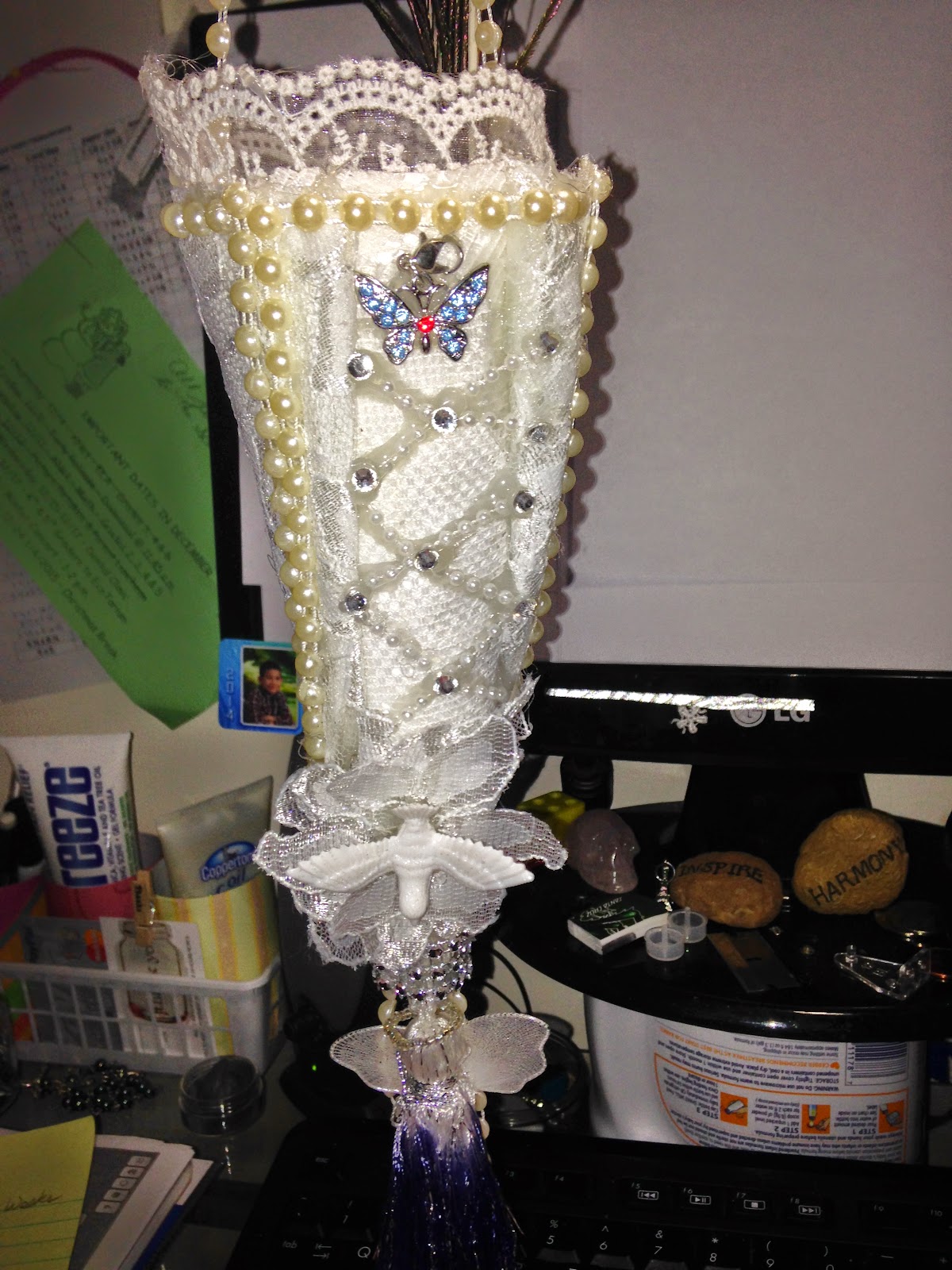Here is my finished Tussie Mussie of Peace inspired by a great lady/designer Mai Larsen.
I little history about the Tussie Mussie:
tussie-mussie, or posy is a small flower bouquet, typically given as a gift. They have existed in some form since at least medieval times, when they were carried or worn around the head or bodice.[1] Doilies are traditionally used to bind the stems in these arrangements. Alternatively, "posy holders," available in a variety of shapes and materials (although often silver), enable the wearing of these arrangements "at the waist, in the hair, or secured with a brooch." [2]
The term nosegay arose in fifteenth-century Middle English as a combination of nose and gay (the latter then meaning "ornament"). So a nosegay was an ornament that appeals to the nose or nostril.[3]
The term tussie-mussie comes from the reign of Queen Victoria (1837–1901), when the small bouquets became a popular fashion accessory. Typically, tussie-mussies include floral symbolism from the language of flowers, and therefore may be used to send a message to the recipient.[4]

I little history about the Tussie Mussie:
tussie-mussie, or posy is a small flower bouquet, typically given as a gift. They have existed in some form since at least medieval times, when they were carried or worn around the head or bodice.[1] Doilies are traditionally used to bind the stems in these arrangements. Alternatively, "posy holders," available in a variety of shapes and materials (although often silver), enable the wearing of these arrangements "at the waist, in the hair, or secured with a brooch." [2]
The term nosegay arose in fifteenth-century Middle English as a combination of nose and gay (the latter then meaning "ornament"). So a nosegay was an ornament that appeals to the nose or nostril.[3]
The term tussie-mussie comes from the reign of Queen Victoria (1837–1901), when the small bouquets became a popular fashion accessory. Typically, tussie-mussies include floral symbolism from the language of flowers, and therefore may be used to send a message to the recipient.[4]

part 1
part 2

Comments
Post a Comment